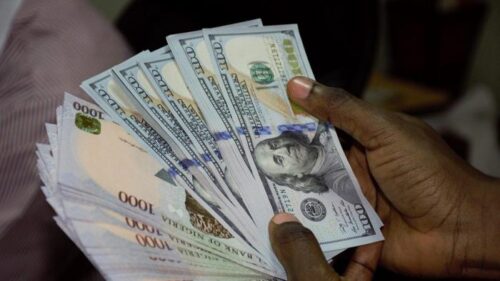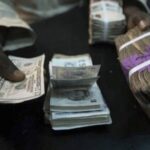The Central Bank of Nigeria (CBN) has introduced new regulations for Bureau de Change (BDC) operators, aimed at tightening oversight within the foreign exchange (forex) market. According to the latest directive, BDCs are now required to document every foreign currency transaction, including the Bank Verification Number (BVN) of the customer, and officially endorse dollar sales on the recipient’s international passport.
This move is part of the CBN’s broader strategy to boost transparency, curb money laundering, and improve tracking of forex transactions across the country. The directive was detailed in a circular signed by W.J. Kanya, Acting Director of the Trade and Exchange Department.

Key Highlights of the New CBN Guidelines:
- Weekly Purchase Limit:
BDCs can now purchase a maximum of $25,000 per week from authorized dealer banks. Each BDC must select a single authorized bank for its weekly transactions. Any attempt to exceed this limit or purchase from multiple banks within the same week will attract strict penalties. - Sales Margin Restriction:
The foreign exchange acquired by BDCs must be sold to end-users at a rate no higher than 1% above the purchase price. This cap applies universally, regardless of the source of the funds. - Mandatory Documentation:
All transactions must include the BVN of the customer, along with an official endorsement of the dollar sale in the buyer’s international passport. This requirement aims to create a clear audit trail, making it easier to verify the legitimacy of forex transactions. - Eligible Transactions Only:
The CBN has restricted BDC forex sales to specific purposes, including:- Business Travel Allowance (BTA)
- Personal Travel Allowance (PTA)
- Payment of overseas school fees
- Medical expenses abroad
Additionally, the maximum disbursement per transaction is capped at $5,000 per quarter for each eligible category.
- Daily Reporting Requirement:
BDCs must submit daily reports detailing their foreign currency purchases and sales through the Financial Institutions Forex Reporting System (FIFX). This measure is designed to enhance real-time monitoring of forex flows.
Strict Compliance and Sanctions:
The CBN has emphasized that both authorized dealer banks and BDCs must adhere strictly to Anti-Money Laundering (AML) regulations and apply robust Know Your Customer (KYC) practices when handling transactions.
Any violation of these guidelines—such as diverting funds, exceeding transaction limits, or failing to comply with reporting requirements—will result in severe sanctions. This could include fines, suspension of operating licenses, or outright revocation of dealership privileges.
“This directive reinforces our commitment to maintaining integrity and stability within Nigeria’s foreign exchange market,” the CBN stated, warning that it will not hesitate to penalize any institution found flouting the rules.
These new measures come at a time when Nigeria’s forex market is under intense scrutiny, with authorities striving to stabilize the naira amidst ongoing economic pressures.


